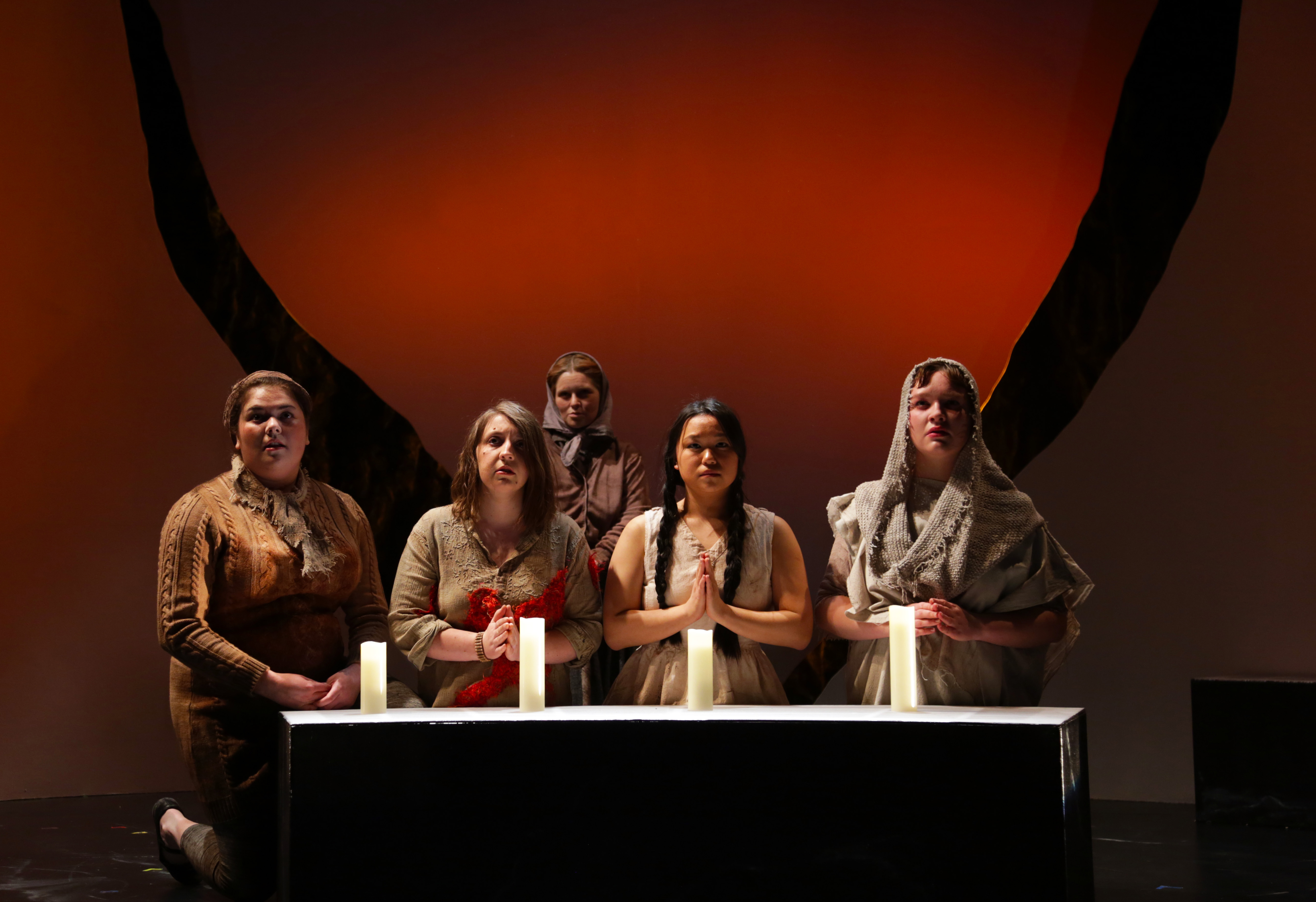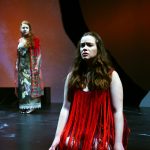The Me Too movement has its roots in 2006, when social activist and community organizer Tarana Burke began to use the phrase to help survivors of sexual violence particularly young women of color from low-income communities find pathways to healing. The movement found a national audience in 2017 as a hashtag through social media, which called attention to sexual harassment and assault in the workplace following allegations of sexual abuse against film producer Harvey Weinstein.
Yet as demonstrated by the Connecticut Repertory Theatre’s production of a modern adaptation of a story from Greek mythology, the history of sexual violence has been chronicled for centuries.
The award-winning “If We Were Birds” by Erin Shields addresses issues of war and sexual violence through the story of Procne and Philomela, daughters of the King of Athens, Pandion I, that is part of the poet Ovid’s best-known work, the “Metamorphoses.” The storyline includes scenes of consensual sex and rape.
Director Helene Kvale, an assistant professor in residence of Dramatic Arts, says that while the play is based on mythology, its themes resonate today.
“Certainly it is in the water in this moment,” says Kvale. “The subjects of sexual violence during wartime and sexual assault in America have been in the news recently. Ultimately I hope that audiences come away with the message that speaking out, especially women speaking out can go a long way towards healing. A byproduct of the Me Too movement is that there are palpable changes happening in the workplaces including the entertainment industry. For instance, Intimacy Directors International is an organization making a big impact on how we rehearse in the theater.”
Intimacy Directors International (IDI) is a not for profit organization that investigates and develops the most effective methods for performing simulated sex, intimacy and nudity for theatre and film. An IDI apprentice, — Marie Percy, assistance professor in residence for movement in Dramatic Arts — worked on the CRT production of “If We Were Birds,” to assist the student actors during rehearsal of the play.
In the play, the war in Athens is over. Love blossoms as Procne leaves her beloved sister Philomela for a new life with husband King Tereus. Bored, Philomela begs to see her sister when the unexpected happens and her life is transformed to mythic proportions. Shields draws on stories from real life testimonies from 20th century conflict. The empowering revenge tragedy earned Shields the 2010 Dora Mavor Moore Award for Outstanding New Play.
“I think what this play does, and hopefully what our production achieves, is that we bring an intensity and reality to it, but with a delicate touch,” says Kvale. “It’s been important to me that we don’t make it a preachy didactic play that says men are bad, women are good. It’s so much more nuanced than that. We tell the story of love to balance it out. The sisterly love between our two protagonists is juxtaposed with their sexual awakening and their discovery of what sex and marriage might be.”
The creative team includes: Casey Lampert (Scenic Design), Allison Zerio (Lighting Design), Taowen Pan (Costume Design), Mack Gauthier (Sound Design), Lizz Mangan and Eddie Vitcavage (Dramaturgs), and Mikayla Carr (Production Stage Manager).
The cast includes: Megan Casagrande (Philomela), Carly Polistina (Procne), Matthew Antoci (Pandion), Aiden Marchetti (Tereus), Pearl Matteson (The Young One), Eilis Garcia (The Pregnant One), Elizabeth Jebran (The Bleeding One/Servant/Itys), Willow Giannotti-Garlinghouse (The Pious One), Adrianna Simmons (The One with Dwindling Dignity) and Thalia Eddyblouin (The Servant).
“If We Were Birds” is presented in CRT’s Studio Theatre, part of the Nafe Katter Theatre, 802 Bolton Road, Storrs. Performances continue through April 7. CRT recommends ages 17 and up (R) for this production. For additional ticket information go crt.uconn.edu
NOTE: Tarana Burke, founder of the Me Too movement, will speak on campus at the Jorgensen Center for the Performing Arts on Wednesday, April 10 at 7 p.m. at an event hosted by the Women’s Center. Tickets are free for students, faculty and staff with a UConn ID. Go online for more information.








